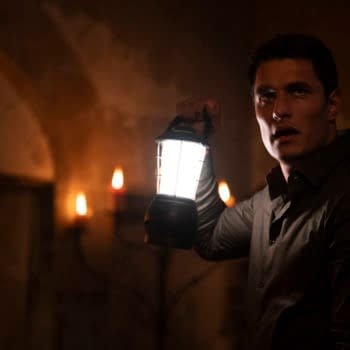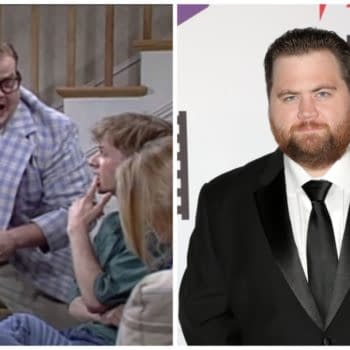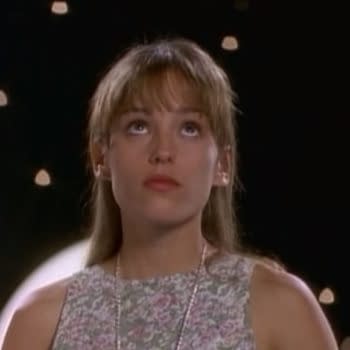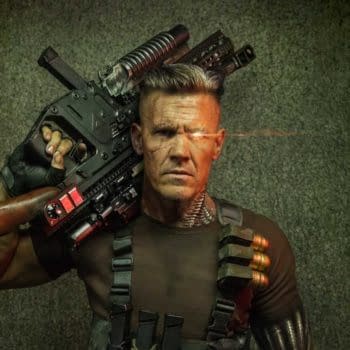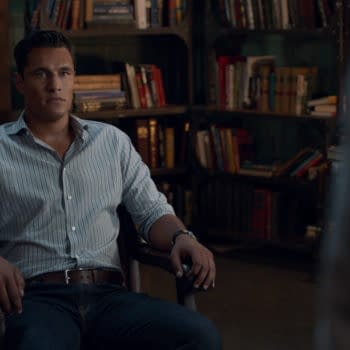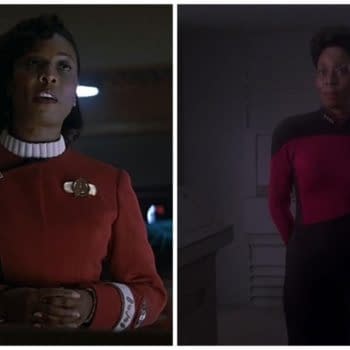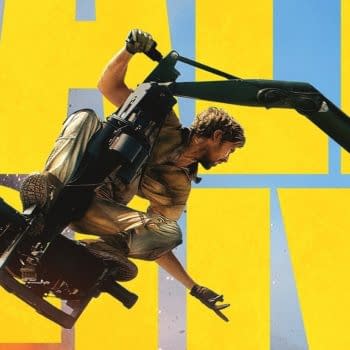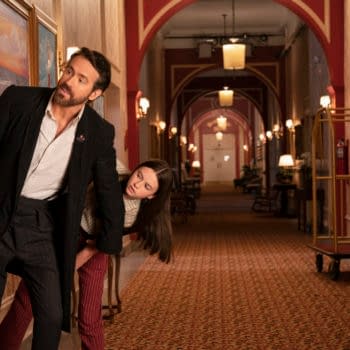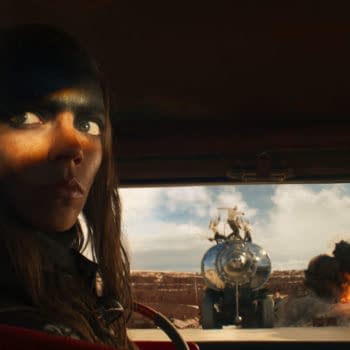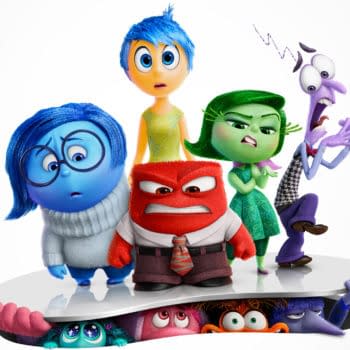Posted in: Exclusive, Interview, Movies | Tagged: adam cooper, bill collage, exclusive, interview, karen gillan, russell crowe, The Avenue, The Book of Mirrors
Sleeping Dogs Director Adam Cooper on Russell Crowe Crime Thriller
Adam Cooper (Assassin's Creed) spoke to Bleeding Cool about his directoral debut in The Avenue's thiler Sleeping Dogs, Russell Crowe & more.
Article Summary
- Adam Cooper makes his directorial debut in the crime thriller Sleeping Dogs.
- Russell Crowe stars as an ex-detective with memory loss in a murder mystery.
- The film is adapted from E.O. Chirovici's novel The Book of Mirrors.
- Cooper discusses challenges shooting on set and his next project's ambitions.
Adam Cooper is accustomed to writing action, dramas, and thrillers with his memorable films like Universal's Tower Heist (2011), 20th Century Studios' Exodus: Gods and Kings (2014) and Assassin's Creed (2016), and Lionsgate's Allegiant (2016). For his directorial feature debut, he enlisted writing collaborator Bill Collage to adapt E.O. Chirovici's The Book of Mirrors to the big screen in Sleeping Dogs. The film follows an ex-homicide detective (Russell Crowe) with memory loss who is forced to solve a brutal murder he can't recall. But as evidence uncovers secrets tied to his forgotten past, he is led to a chilling truth – sometimes, it's best to let sleeping dogs lie.
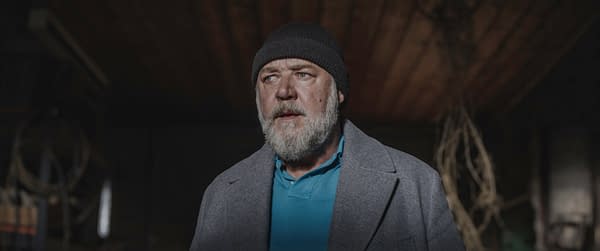
Sleeping Dogs: Adam Cooper on Bringing E.O. Chirovici's Story to Live & Casting Russell Crowe
What intrigued you about 'Sleeping Dogs?'
Cooper: When I read the book back in 2016, I was compelled that it played with this idea of the role that memory and our awareness of our past plays in shaping who we are as people and the choices that we make and that it did it, through the experience of a murder mystery. I was drawn to that, and I was drawn to the character that Russell plays in the book, whose name is Roy Freeman, who is a homicide detective who is dealing with Alzheimer's and tasked with re-approaching this case that he doesn't remember. I thought lensing a narrative through the eyes of a character with that experience was a compelling way to tell a forward-leaning story in this genre.
You're working with Bill [Collage] again for the script, and what did he bring to the treatment of E.O. Chirovici's story?
Bill and I had been working exclusively together up to and through the experience of writing this film. We had been brought the book by a guy named Pouya Shahbazyan, [a producer] we met working on 'Allegiant' (2016), and they presented us the book in galley form before it was published. The same things compelled us both. This story of this cop who is reinvestigated in this case, from the past but can't remember it. We adapted it the same way that we'd adapted to other things. We pulled out the threads that we thought would be most compelling in telling a story in this genre. We broke it in the story beat form, and then we did it like we've done other things before, which is divided up scenes, and traded them back and forth and slowly built a complete narrative doing it that way because we'd always lived in different cities.
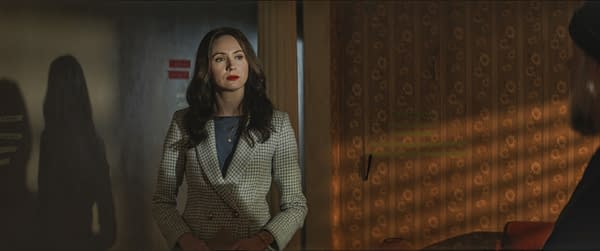
Was it something that you guys had to go above and beyond the canvas of the book? Did you research things about living with Alzheimer's? What are some of the nuances and treatments you have going into it?
Well, because it was a character with Alzheimer's and we were using his memory as a device, we wanted it to feel real. The elements of DBS, deep brain stimulation, and the procedure that Russell's character was undergoing were things that we researched and found, but they were not in the book. We used it to create our medical ticking clock. That was probably the biggest area where we sort of researched because we wanted, certainly, whoever the actor was at the time playing the part, we wanted the circumstances that the character was in to be real and rooted in science.
Was Russell the original choice, or were other names floating around for Roy?
Russell, in the early days of our material development, was somebody we wanted but never thought we could get. We developed with other actors, but we couldn't get the movie made at the time. Russell read the script in March or April 2022, and I remember when it was being sent to him. I didn't believe that it could ever come to fruition. I'm still surprised and grateful that I got to make a movie with Russell Crowe.
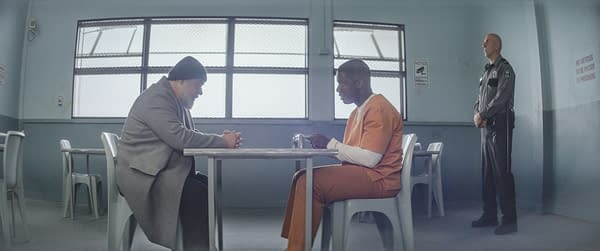
With the other names, did you pencil them in initially and get them right away, or was it just more of an open audition process?
It wasn't so much an open audition process as it was how the business works if you've written something on spec and tried to get an actor, but a studio does not back it. It's hard to get reads out of people. It wasn't even about an audition process. It didn't become about anybody auditioning until the movie was being made. At that point, it was actors who were auditioning for smaller parts. All the people from Russell, Karen [Gillan], Tommy Flanagan, Marton Csokas, Thomas Wright, and Harry Greenwood, none of those actors read for their parts. They were all offered.
Was there a sequence that was difficult to capture or execute?
It was our last day of shooting. It was a night shoot, and we were shooting the stunt involving the truck and the gunplay at that moment. That required a lot of choreography. That was the only day on a 30-day shoot with a techno crane, so one was running up on our actor. That was probably the most challenging sequence that we shot. Those 20 seconds took eight hours to shoot.
Can you break down your work between big-budget and indie projects? Did you feel you had to sacrifice due to 'Sleeping Dogs' on a smaller scale?
It was never because of scale as much as a movie with many locations because of the flashbacks. One day, I lost a scene we were shooting because we didn't have enough time. What I was mostly up against was time, and it wasn't about scale. We have 30 days to shoot it; in Australia, you shoot a ten-hour day, including lunch. You're at nine hours and 15 minutes on your shoot day, and on days we shot with Russell. He was in a makeup chair for between 45-90 minutes, depending on the different looks that we were doing with the bald cap. On those days, we would have eight hours. It was about time and setup because it's a contained, intimate, largely portrait-style film. Not a lot of exteriors to it.
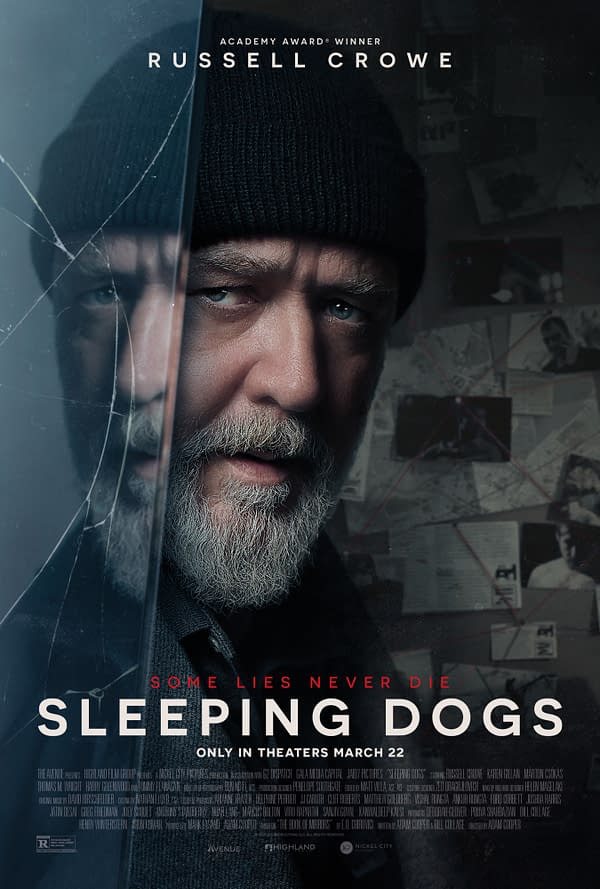
What do you hope to do regarding any future projects you're circling on?
I'm writing a project that I hope to direct, which is an elevated sci-fi drama that also deals with issues around identity and features a female protagonist who's on a journey to save her own life because of her illness. In the process of doing it, she finds out something much bigger about herself and humanity. It's a mosaic structured like a movie, like 'Syriana' (2005), 'Traffic' (2000) or 'Babel' (2006). It's unique because I haven't seen a movie tone like this that's been done in that genre and with that kind of structure before. That's what I'm working on.
The Avenue's Sleeping Dogs is currently in theaters.






